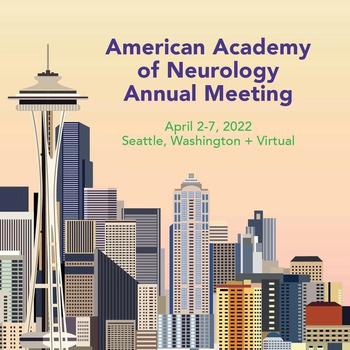
Test your neurology knowledge with NeurologyLive®'s weekly quiz series, featuring questions on a variety of clinical and historical neurology topics. This week's topic is neuromuscular disorders.

Matt Hoffman, Editorial Director for NeurologyLive, has covered medical news for MJH Life Sciences, NeurologyLive’s parent company, since 2017. He executive produces the NeurologyLive Mind Moments® podcast, and hosted the Medical World News show Deep Dive. Follow him on Twitter @byMattHoffman or email him at [email protected]

Test your neurology knowledge with NeurologyLive®'s weekly quiz series, featuring questions on a variety of clinical and historical neurology topics. This week's topic is neuromuscular disorders.

Mind Moments®, a podcast from NeurologyLive®, brings you an exclusive interview with Jessica Ailani, MD. [LISTEN TIME: 35 minutes]

DSP-0187, an orexin-2 receptor agonist, adds to Jazz’s portfolio of sleep disorder therapies, expanding it into a new medicine class. The molecule will be referred to as JZP441 by Jazz.

Catch up on any of the neurology news headlines you may have missed over the course of the last month, compiled all into one place by the NeurologyLive® team.

The phase 2 study will feature a 24-week treatment period followed by an 80-week open-label treatment period with the small-molecule RIPK1 inhibitor. It seeks to enroll 260 patients with ALS.

Axsome expects to address the concerns in the letter and plans to resubmit AXS-07. The MoSEIC meloxicam-rizatriptan combination significantly reduced migraine symptoms and pain compared with placebo and both active agents in a pair of phase 3 trials.

Test your neurology knowledge with NeurologyLive®'s weekly quiz series, featuring questions on a variety of clinical and historical neurology topics. This week's topic is stroke.

Shurjal Baxi, MD, MPH, the senior vice president of Clinical and Scientific Solutions at Verana Health, shared her perspective on the AAN’s Axon Registry and how quality data collection can drive improvements in patient care and management.

Peter J. McAllister, MD, FAAN, medical director and chief medical officer, New England Center for Neurology and Headache, offered his insight into data from the phase 2 STEMTRA trial in TBI and the trends he’s observed in the field of regenerative medicine.

Expert clinicians offer their insight on the associations between stroke and COVID-19, treatment for traumatic brain injury, the latest on aducanumab, priorities for research in migraine, and more, from the 2022 American Academy of Neurology Annual Meeting.

Patients who switched from a twice-nightly stable regimen of Xyrem or Xywav to once-nightly FT218 reported that they preferred the new dosing schedule, along with challenges in adherence to twice-nightly dosing.

Following an NCD that will allow for Medicare coverage of the therapy only in NIH- and FDA-approved studies and trials, Biogen has pulled its application to the European Medicines Agency for aducanumab treatment in Alzheimer disease.

Those treated with siponimod (Mayzent; Novartis) for 5 or more years had significant reductions in 6-month disability and cognitive processing speed compared with patients who switched from placebo.

Jacqueline A. French, MD, discussed the factors that influence the challenges in treatment selection in epilepsy, and how patient conversations and comprehension of heterogeneity can help in the treatment selection process.

Test your neurology knowledge with NeurologyLive®'s weekly quiz series, featuring questions on a variety of clinical and historical neurology topics. This week's topic is epilepsy and seizure disorders.

Mind Moments®, a podcast from NeurologyLive®, brings you an exclusive interview with Yasar Torres-Yaghi, MD. [LISTEN TIME: 25 minutes]

BioArctic CEO Gunilla Osswald, PhD, called the decision disappointing but noted that phase 1 data are supportive of ABBV-0805’s progression to phase 2 and that the company would “investigate options to continue the development” of the α-synuclein antibody.

David Kudrow, MD, provides expert insight on the newest options for migraine management and prevention.

The study investigators noted a desire to further assess the virtual aspect of the HOBSCOTCH self-management and cognitive training intervention, calling it “particularly well-suited for the current environment.”

Test your neurology knowledge with NeurologyLive®'s weekly quiz series, featuring questions on a variety of clinical and historical neurology topics. This week's topic is headache and migraine.

A literature review of the evidence for erenumab (Aimovig; Amgen) treatment in migraine suggests that certain patients would benefit from initiating treatment at 140 mg rather than 70 mg and that the higher dose more effectively prevents progression to chronic disease.

Basil Darras, MD, offered his perspective on the ASCEND study (NCT05067790) of nusinersen (Spinraza; Biogen) in SMA and what it aims to uncover about the therapy.

Alnylam’s investigational subcutaneous RNAi therapy is in development for both wild-type and hereditary transthyretin-mediated amyloidosis, with data from the phase 3 HELIOS-A trial demonstrating its potential in treating associated polyneuropathy.

Shephard Mpofu, MD, the senior vice president and chief medical officer at Novartis Gene Therapies, offered his perspective on the latest phase 3 data of onasemnogene abeparvovec (Zolgensma) in SMA treatment.

Data presented at the 2022 AAN Annual Meeting from the ALITHIOS and KYRIOS trials suggest that ofatumumab (Kesimpta; Novartis), an anti-CD20 therapy, is safe with up to 4 years of treatment and does not prevent the mounting of an immune response to mRNA vaccines.

Test your neurology knowledge with NeurologyLive®'s weekly quiz series, featuring questions on a variety of clinical and historical neurology topics. This week's topic is the history of the American Academy of Neurology.

Mind Moments®, a podcast from NeurologyLive®, brings you exclusive interviews with Jennifer Frontera, MD; Stephen Krieger, MD; Peter McAllister, MD; Kelly Knupp, MD, MSCS; Bruce Cree, MD, PhD, MAS; Shrujal Baxi, MD, MPH; and Indu Subramanian, MD. [LISTEN TIME: 32 minutes]

Seth M. Keller, MD, chair of the Section for Adults With IDDs at AAN, shared his perspective on the state of care for these individuals and the need to improve the difficulties they face when transitioning out of pediatric care.

The Pharma Two B therapy combines a dopamine agonist, pramipexole, and an MAO-B inhibitor, rasagiline, and has shown significant improvements on UPDRS total scores and ESS scores for untreated patients with PD.

One-year data from the single-arm phase 3b CONSONANCE trial (NCT03523858) suggest that the Genentech agent (Ocrevus) resulted in low levels of disease activity and improved cognitive performance in those with secondary and primary progressive multiple sclerosis.